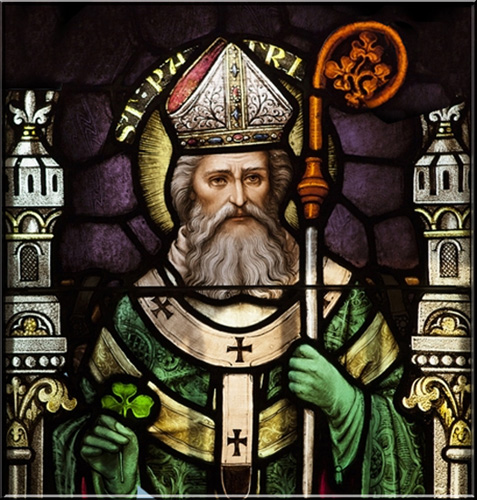  by Rev. J. E. Nolan, 1883
The mission of this Prayer Book is learning and piety. Its immediate object is to encourage the study of Irish; its remote (second in order of time, but first in order of merit), is to serve religion. To study Irish is a healthy mental exercise, and the acquisition of it, in addition to the language one speaks, is an accomplishment of a very high order. "A man that knows two languages is twice a man." The neglect of a national language is an index of national mental degradation. In Ireland the Irish language seems to be the only remaining sign by which our distinct nationality may be known, and that too has been nearly wiped out by internal causes and foreign influences. It is time lost to lament over the dead past, which may be remedied only by acting in the living present. The spirit that is abroad in favour of the Irish language, from Philadelphia to Berlin, should stir up the national mind of Ireland (not proverbially lethargic) to a sense of national and religious duty--viz., the conservation of her own language. From Cork to the Causeway, as from Dublin to Clifden, there is an innate love for the language of Ireland in the heart of every Irishman, which requires but little effort to be quickened into a practical external development. The language of Ireland is a golden vase in which are enshrined the precious deposit of our history, the traditions of our country, the abiding proofs of the high culture of the men of our race. To guard such a treasure is a pious duty--"The care of the National Language is a Sacred Trust."
Study, like many other human acts, taken in the abstract, is neither sinful nor meritorious. If this Prayer Book be used for study alone, it will fall very far short of its object; but if studied "with a good intention," it becomes meritorious, and will be the means of acquiring a higher and holier knowledge of God, not scholastic but devotional. Learning and piety should go hand in hand, helping each other as one brother helps another. "A brother who is helped by his brother is like a strong city"--Prov. xviii., 19. The city is the soul. Strengthen it by opposing learning and piety to the twin enemies, ignorance and irreligion. Apocryphal prayers (prayers of doubtful authenticity), like those condemned by the Church, find no place here. Of the latter class is the prayer said to be written by St. John the Evangelist, and found in the tomb of our Lord, to the recital of which the performance of wonderful prodigies is foolishly attributed. From the Prayers at Mass are carefully excluded translations not only not permitted, but positively prohibited by Holy Church. And yet, notwithstanding these condemnations and conscience-binding prohibitions, both apocryphal and condemned prayers have found their way into Catholic Prayer Books of wide circulation, to the discredit of religion and spiritual loss of the faithful. If the Morning or Evening Prayers be considered too short, the Hymn of St. Patrick, whose praise is in itself, a third part of the Rosary, or a Penitential Psalm, could be profitably added. The Litany of Jesus, as in the Morning Prayers, is approved by our Holy Father the Pope, and it is the only Litany of Jesus permitted to be publicly recited in the Church. The name of St. Patrick is inserted in the "Confiteor," conformable to a practice of time immemorial amongst the Irish speaking people. It may be also found in the Prayers at Mass beside the name of "The Mary of Ireland." The Psalms are a most beautiful form of prayer. They are of Divine origin; they were the prayers of the chosen people of God ; they were frequently recited by the early Christians; they still form the principal part of the Divine Office, and extracts from them are frequent in the Holy Mass. St. Patrick recited the entire psaltery every night after his missionary day's labour in the following manner: "He divided the night into three parts. In the first he recited one hundred psalms, and bent the knee two hundred times; in the second, he recited the remaining fifty psalms, immersed in cold water, his heart and hands and eyes raised to heaven; the remaining third of the night he gave to slight rest, lying on a bare stone."--Rom. Brev., March 17. Read a psalm every day. Learn a verse by heart every day. "Taste, and see that the Lord is sweet."--Ps. 33-9. Is it not a singular thing to write such a preface to such a book? Yes; and it is also singular that it should be necessary to write it in English in order that Irish people may understand it. The reproach, however, if there be any, is theirs who have in the past been ashamed of Irish; who have smiled with a smile of contempt on the little ones who spoke it. But you will not follow the example. You will not disown your language, any more than you would your creed or your country. You will not slink away, but you will step into the ranks of the moving millions marching steadily on to the victory of knowledge over ignorance. The tide comes in slowly, but it comes; and when full in, how it seems to exult in the splendour of its own magnificence! So with true learning, which, moreover, raises man above man, and likens him even unto God. May St, Patrick's Prayer Book help to fill the minds of Irishmen with a knowledge of their native language, and their hearts with the love of God, and thereby, contribute to preserve to Ireland the name of "Island of Saints and Scholars," of which title a greater country than Ireland might be proud without being presumptuous. May God and St. Patrick bless us all.--PREFACE. Download the book, "St. Patrick's Prayer Book" http://catholicharboroffaithandmorals.com/ |